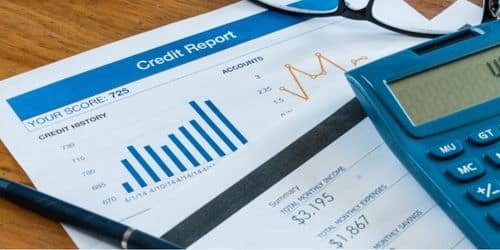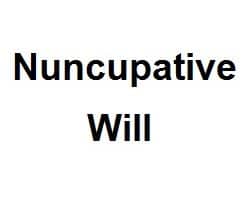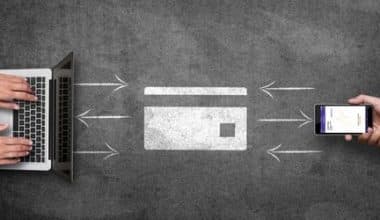Credit scores have an impact on nearly all important financial milestones for American adults, from qualifying for a credit card to buying a house. Regardless of how important they are, it is not always obvious how to quickly build or acquire a good credit score from scratch. Common credit-damaging pitfalls, such as excessive credit card debt, may be more common than you think. Over one-fifth (22%) of US, households have more credit card debt than they have saved for unexpected emergencies. So, in this guide, we will explore ways to build a credit score from scratch fast and how to increase your credit.
Best Ways to Build Credit Fast
It can be difficult to build a credit score from scratch quickly. It’s difficult to get a loan, a credit card, or even an apartment if you don’t have a credit history.
If no one will grant you credit in the first place, how can you demonstrate a track record of responsible repayment?
You can establish a credit history in several ways, including:
- If you want a credit card, you may start with a secured credit card or a co-signed card, or you could request to be an authorized user on someone else’s card.
- If you don’t have a credit card and want to build credit, you could attempt a co-signed loan, secured loan, or credit-builder loan. Rent, phone, and utility payments can also be used to build credit. Some of these methods are free, while others charge a fee.
Here’s a look at credit-building tools and how to use them to build a decent credit score fast.
#1. Get a Secured Credit Card.
One of the quickest ways to build a credit score from scratch is to start with a secured credit card. A cash deposit, usually the same amount as your credit limit, is used to back up a secured card. The minimum and maximum deposit amounts vary by card.
Many credit cards require a $200 minimum deposit. Avant, Deserve, and Petal are some of the companies that now offer credit cards that don’t need a security deposit. You’ll use the card like any other credit card: make purchases, pay your balance in full on or before the due date, and pay interest if you don’t. When you close the account, you will receive your money back.
Secured credit cards are not intended for indefinite use. A secured card is used to build your credit so that you can apply for an unsecured card, which does not require a deposit and offers higher perks. Make sure your secured card reports payment information to all three credit bureaus, Equifax, Experian, and TransUnion, and has a modest yearly cost. Your credit score is based on the information in your credit reports. Credit cards that report to all three bureaus give you a more complete picture of your credit history.
#2. Purchase a credit-building product or a secured loan.
A credit-builder loan is exactly what it sounds like: it is designed to help people build credit quickly from the ground up.
Typically, the money you borrow is held in an account by the lender and is not released to you until the loan is repaid. Your payments are recorded with the credit bureaus, and it’s sort of a forced savings program. Credit unions and community banks provide these loans the most frequently.
A secured loan for credit building is another possibility if you have money on deposit with a bank or credit union. The collateral in these cases is money in your account or a certificate of deposit. The interest rate is normally slightly higher than the account interest rate, but it may be much lower than your other options.
#3. Make use of a co-signer.
This is one of the ways to build a credit score quickly. A co-signer is also an option when applying for a loan or an unsecured credit card. However, make sure that both you and the co-signer realize that if you fail to pay, the co-signer will be held liable for the whole amount owed.
A family member or significant other may be willing to add you to his or her card as an authorized user. You’ll want a principal user with a long history of timely payments because doing so adds that card’s payment history to your credit reports. Also, if you are added as an authorized user, the time it takes to make a FICO score can be cut down. It is especially beneficial for a young individual who is just starting to build credit.
To profit from being an authorized user, you don’t even need to use a credit card. Find out from the main cardholder if the card issuer tells credit bureaus about what an authorized user does with the card. That activity is usually reported, but you should double-check; otherwise, your credit-building efforts may be futile.
Before you’re added as an authorized user, you should agree on whether and how you’ll use the card, and be prepared to pay your portion if that’s the arrangement you strike.
#5. Get credit for your paid bills.
Rent-reporting services like Rental Kharma and LevelCredit add a bill you already owe to your credit report. This helps you build a good history of paying your bills on time. Not every credit score considers these payments, but some do, and this may be enough to qualify for a loan or credit card that establishes your credit history for all lenders.
You can add your cell phone and utility bills to your Experian credit report with Experian Boost. Note that the effect is only on your Experian credit report and any credit ratings that come from it.
#6. Develop strong credit habits.
One of the ways to build a decent credit score from scratch is to have a track record of making on-time payments, which takes time.
For a FICO score, you must have at least one account that has been active for at least six months and at least one creditor that has reported your activity to the credit bureaus in the last six months.
Practice these good credit habits to build your score from scratch:
- Try to make your payments on time, and if possible, pay at least the minimum. The most important thing you can do to help build your credit score is to always make your credit card or loan payments on time. It is also beneficial to your credit score if you can pay more than the minimum.
- Keep your credit utilization low if you use credit cards; utilization is the percentage of your credit limit that you utilize. Keep your credit utilization on all cards below 30% whenever possible. The lower your utilization, the higher your score.
- Avoid applying for several credit accounts at the same time; credit applications can temporarily lower your score. Multiple applications can do a lot of harm. NerdWallet suggests waiting six months between applications and finding the best credit card for your needs.
- Continue to use your credit card. Consider keeping an account open unless you have a strong course to close it, such as a high yearly charge or terrible customer service. You could also consider lowering it or shifting your credit limit to a different card. Closing an account might reduce your average account age and credit use.
#7. Check your credit scores and reports
A credit report is a record of your credit usage. Using the information in your credit reports, your credit scores indicate how you’ll handle credit in the future. You’ll want to keep an eye on both to look for problems and to determine if your credit-building efforts are paying off.
Several credit card companies post FICO scores on monthly statements and provide internet access. Some card companies provide free credit scores to anyone, cardholder or not.
Check each of your credit reports for errors and anomalies once you request them. AnnualCreditReport.com allows you to check your reports for free every week until December 2023. If you find mistakes on your credit report that could be hurting your scores, you should dispute them.
How to Build and Maintain Good Credit
To build strong credit, you need more than just a credit card or loan that reports to the credit bureaus. If you’re not careful, your credit score might be seriously damaged. However, by following the steps outlined below, you can build and keep a good credit score.
#1. Always paying on time.
Payment history makes up 35% of your credit score, making it the most important factor in establishing good credit. Make at least the minimum payment each month so that your bank can report your on-time payments to the credit bureaus. However, it is best to pay the full amount each month to avoid building up a balance. Maintaining low balances and maxing out credit cards make you appear to be a risky borrower. Keep your balance under 30% of your credit limit, according to experts. For instance, don’t spend more than $150 on a card with a $500 credit limit.
#2. Keeping cards open.
15% of your credit score is determined by how long your credit history is. This means that keeping your older credit cards open, even if you don’t use them for daily purchases, helps you build credit. It’s worth noting that you may need to put a minor charge on older cards every few months to keep the issuer from closing the account for inactivity.
#3. Using various credit cards.
Consumers who manage a range of credit accounts properly, such as credit cards, student loans, and auto loans, will do well on the “credit mix” aspect that affects their credit score. While this only accounts for 10% of your score, it is still a vital step toward improving your credit.
Again, building credit from scratch takes time, but a strong credit score determines whether you’re approved or denied for credit or a loan, as well as the interest rates you’ll be paid if approved.
For example, a savings loan calculator from FICO shows a possible APR of 3.81% for those with the best credit scores and a possible APR of 15.688% for those with the worst credit scores when calculating rates on a $30,000 new auto loan for a resident of the state of New York over 36 months. According to the calculation, this equates to a monthly payment of $883 vs. a monthly payment of $1,050, a difference of $167 each month.
How can I get a 700 credit score in a month?
Here’s what you should do.
- Always make your payments on time.
- Maintain a modest credit usage.
- Keep previous accounts open.
- Pay off credit card debt.
- Request a higher credit limit from your card issuer.
- employ the authorized user technique.
- Put your bill-paying money to use.
- Use a rent reporting service.
How can I raise my 700 credit score?
Here’s how to raise your credit score to over 700:
- Always pay on time.
- Cut back on your credit card debt.
- Avoid taking on new tasks regularly.
- Be aware of the credit card types you use.
- Challenge incorrect credit report data.
- Keep old credit cards open.
What is the best thing to build credit?
The most powerful steps you can take to improve your credit are to pay your bills on time and to pay off your credit card balances. Issuers record your payment behavior to credit bureaus every 30 days, so positive moves can enhance your credit quickly.
How can I build my credit in 7 months?
Here are ways to build your credit score from scratch fast in seven months:
- Make on-time payments on your credit card account.
- Maintain a healthy credit profile.
- Look at the length of your credit history.
- Reduce the number of hard inquiries.
- Improve your debt-to-income ratio.
- Pay off credit cards in two installments.
- Request credit limit increases to boost the utilization ratio.
- Work with a creditworthy individual.
How to get a 720 credit score in 6 months?
Do you want to know how to raise your credit score to 720 in six months? Your credit improvement strategy and timeline are determined by where you start. However, there are several basic credit improvement principles that may be useful to you.
- Examine your credit reports and credit scores.
- Avoid paying late.
- Decrease your credit utilization.
- Boost your credit report with good accounts.
How long does it take to build a 750 credit score?
It often takes 5 years or more to reach an outstanding credit score of 750+. But it also means that building a history of being smart with money takes time and patience.
Conclusion
Building credit from scratch does not have an official timeline. Building credit takes time and financial responsibility. By making steady progress, you may set yourself up to one day achieve larger financial goals, such as purchasing your own home.
Related Articles
- Building a Brand from Scratch: Best 2023 Effective Strategies
- HOW TO USE CREDIT CARD TO BUILD CREDIT: Detailed Guide
- HOW TO BUILD CREDIT AT 18: Detailed Guide
- WHAT IS BUSINESS CREDIT: Definition, and Uses
- Business Start-Up from Scratch for Beginners (+ How-to-Start Guide)
- Building a Winning Team: Cultivating Loyalty and Collaboration






